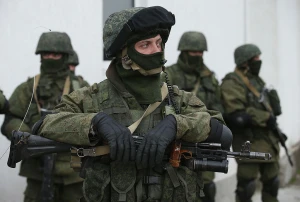
Why Russia refuses to participate in follow-up Ukraine Peace Summit
Maria Zakharova, the official representative of the Russian Foreign Ministry, announced that Russia will not participate in the Peace Summit organized at Ukraine’s initiative
The author of the Resurgam Telegram channel shared insights on why Russia is now refusing to participate in the second Peace Summit after previously demanding its inclusion.
Some may be confused by this shift: “How can Moscow appear to want to freeze the war, gain a platform to push its own agenda, yet previously state that without an invitation, nothing matters, and now outright refuse participation?”
“The answer is simple: with such statements, Moscow aims to delegitimize Ukraine's summit to legitimize its own, organized through the Sino-Brazilian initiative,” the author believes.
Moscow's efforts to undermine Ukraine’s summit may focus on three main strategies:
1. Moscow's refusal to participate (e.g., claiming that without all parties represented, no meaningful decisions can be made). This will be used as a way to sway “neutral countries.”
2. China’s actions to gather as many countries as possible for its own summit, using both “encouragement” and “pressure.”
“The aim is to show strength in numbers and claim, ‘Look, we have more countries, and the process won’t move forward without us,’” Resurgam author points out.
3. Dividing Europe.
“Currently, the unified front supports ‘Kyiv’s initiative,’ but with a second option, fractures will appear. As always, in any large group, there will be dissenters—like Hungary and the AfD in Germany—who will undermine the fundamental principles, arguing their ‘alternative choice’ is the new norm,” the author explains. “Moscow’s actions are logical and fit into a larger plan. This is demonstrated, for instance, by Brazil’s refusal to engage in dialogue with Ukraine.”
Zelenskyy's recent criticism of the Sino-Brazilian initiative underscores the ongoing tension: “We’re not naïve. What is this performance? You engage with Moscow on an initiative and present it as just and fair, yet it clearly shows a disregard for Ukraine and its territorial integrity—values that China and Brazil claim to support.” This remark aims to undermine the legitimacy of the Moscow-backed Sino-Brazilian initiative during Zelenskyy’s international interviews.
“In this political and diplomatic standoff, the side that garners the most international support will ultimately prevail. For Moscow, success hinges on drawing European countries into the Sino-Brazilian initiative, thereby fracturing the unified support for Ukraine. Hungary is likely to participate, but there are notable risks for countries like Germany, Slovakia, Austria, and even the United States, particularly if Trump is re-elected,” says Resurgam author.
Meanwhile, for Ukraine, success involves preserving European unity around its own initiative while also seeking support from as many countries in the Global South as possible to counter China and Brazil. Potential key partners could include India, Argentina, and Chile. This is why India, despite its connections to Moscow, is drawing significant attention.
Now is an opportune moment for Modi to attend the Quad meeting with Biden, Kishida, and Albanese (the Australian Prime Minister) to discuss Ukraine and related initiatives. This is especially critical ahead of the upcoming events during and after the UN General Assembly.
“This marks the beginning of a major political and diplomatic battle, and its outcome will greatly influence future developments. In this new geopolitical chess match, all players have made their opening moves,” the author concludes.
- News













































